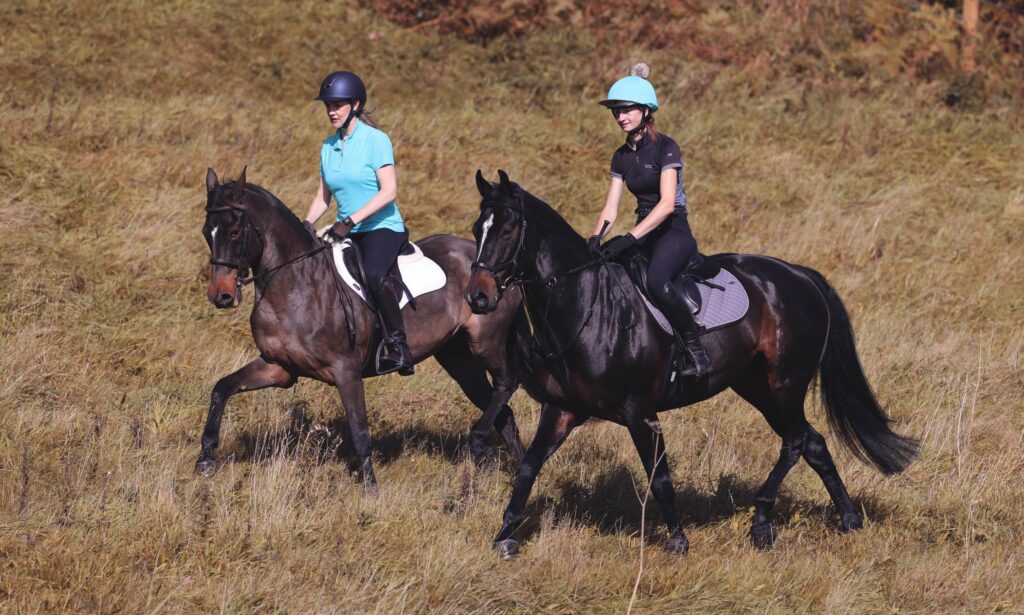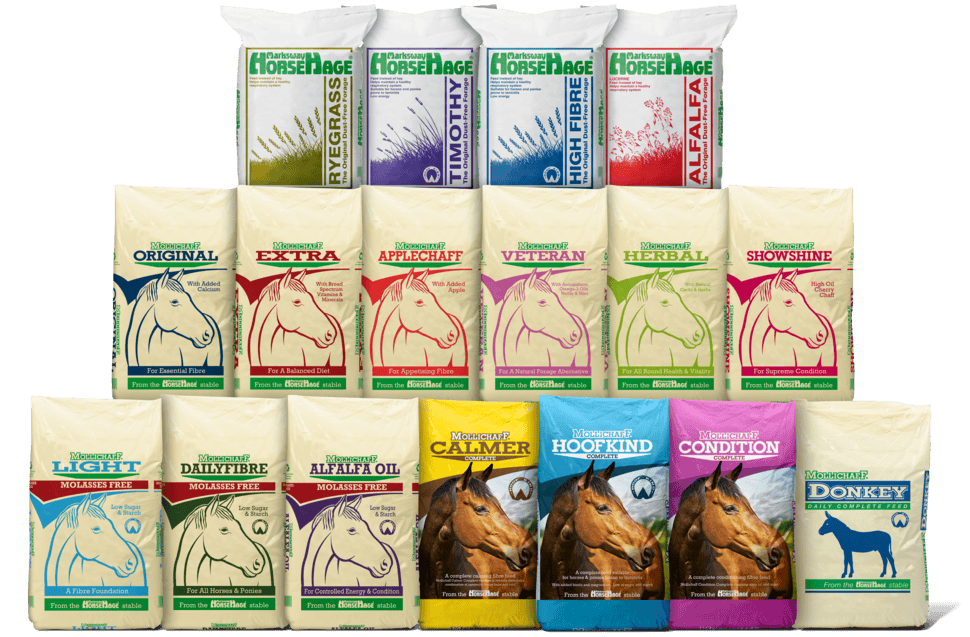
A healthy diet is essential for all horses, but many consume more than they need, which can lead to weight gain. Springtime can be a particularly precarious time for owners with good doers or horses that are overweight as it means more grass, and more grazing opportunities for your horse.
Being overweight or obese can affect all systems in your horse’s body, putting stress on the internal organs, bones and joints. Weight gain also affects energy levels, regulation of temperature and reproductive rates, in addition to increasing the risk of laminitis.
Condition scoring can help you identify if your horse is of a healthy weight or if they are carrying too much body fat. If your horse does need to lose some body fat, they will need to be ‘calorie deficient’ to achieve this. To be calorie deficient your horse will need to consume less calories than it is using up.
A calorie deficit can be encouraged in two ways: firstly, by reducing dietary calorie intake and secondly, by increasing the number of calories being used up usually through an increase in exercise. Most overweight horses will require both a reduction in the number of calories being consumed, as well as an increase in exercise to help them lose weight.
What Should I Feed My Overweight Horse?
When looking at feed for overweight horses, ask a professional equine nutritionist for guidance. Most horses will easily fulfil and many are likely to exceed their calorie quota through grazing and will need to have their grass intake restricted.
Grazing muzzles or strip grazing may provide a successful option to managing grass intake. For some individuals, it may be necessary to temporarily remove them from grazing all together. It’s particularly important to monitor both calories and WSC’s if your horse is prone to conditions like:
- Insulin dysregulation
- Equine metabolic syndrome
- Laminitis
- PPD
Although grass contains beneficial nutrients, it also contains high levels of calories and WSC (water soluble carbohydrates or “sugars”).
Forage
If your horse is completely removed from grazing, it is vital that a suitable source of forage is supplied to fulfil the fibre requirements; the forage must be of good quality and low nutrient value. Always weigh your forage choice to reduce the risk of overfeeding and ideally choose an option that has been tested for its nutritional values. Hay is likely to be too high in calories for weight loss, although soaking will help to reduce the calorie content and, if fed in appropriate quantities, can provide a suitable option.
Choosing a bagged forage product rather than air dried hay, as they will have lower sugar levels due to the fermentation process, could be an option for those where health conditions dictate that a diet low in WSC is required, although the calorie content can be too high for weight loss. Combining bagged forage with clean straw will help to reduce the overall calories of the forage ration.
Good quality, bright and clean straw offers a low calorie, high fibre option and can replace up to a third of the forage ration. Providing a proportion of the daily forage allocation as straw can help meet both the psychological need to chew and to help maintain gut motility in horses and ponies on restricted diets.
Vitamins and minerals
All horses should have their diets supplemented with a broad-spectrum vitamin and mineral supplement to encourage a balanced diet and optimum health. For where weight loss is being encouraged, it is imperative that a suitable vitamin and mineral source is provided as they are more at risk of experiencing deficiencies as a result of their restricted diets. Low calorie balancers, complete feeds or a vitamin and mineral supplement in a high fibre, low calorie chaff provide a variety options so that you can choose one suitable for your horse.
How Else Can I Get My Horse to Lose Weight?
- Use condition scoring and a weigh tape regularly to help you keep track of changes
- Do not starve your horse
- Implement a gradual fitness programme that starts slowly, particularly important if your horse is obese, and gradually increases the intensity and/or distance. This will help to increase the calories used, improve fitness levels and reduce the risk of injury.
- Both ridden and non-ridden exercise can be beneficial
- Restricted grazing time can lead to faster eating. Instead, restrict grass intake through strip grazing, a muzzle or a paddock with limited grass
- A track system may not reduce the quantity of grass your horse eats although it can help to keep your horse moving as they graze
- Reduce or remove rugs: If overweight, your horse’s body will produce excess heat
- Use small-holed or trickle feeder hay nets to make forage last longer
- Keep your horse hydrated: This is an overlooked but important part of nutrition
For more suggestions on how to manage your horse’s weight, check out this leaflet written and produced by Tamzin Furtado and the team at the University of Liverpool in conjunction with The Horse Trust: https://www.liverpool.ac.uk/media/livacuk/equine/documents/Equine,Weight,Management.pdf
Want free nutritional advice?
Our friendly and knowledgeable team is available on weekdays from 9am to 5pm.
Give us a call at 01803 527274 or send an email to sales@horsehage.co.uk


